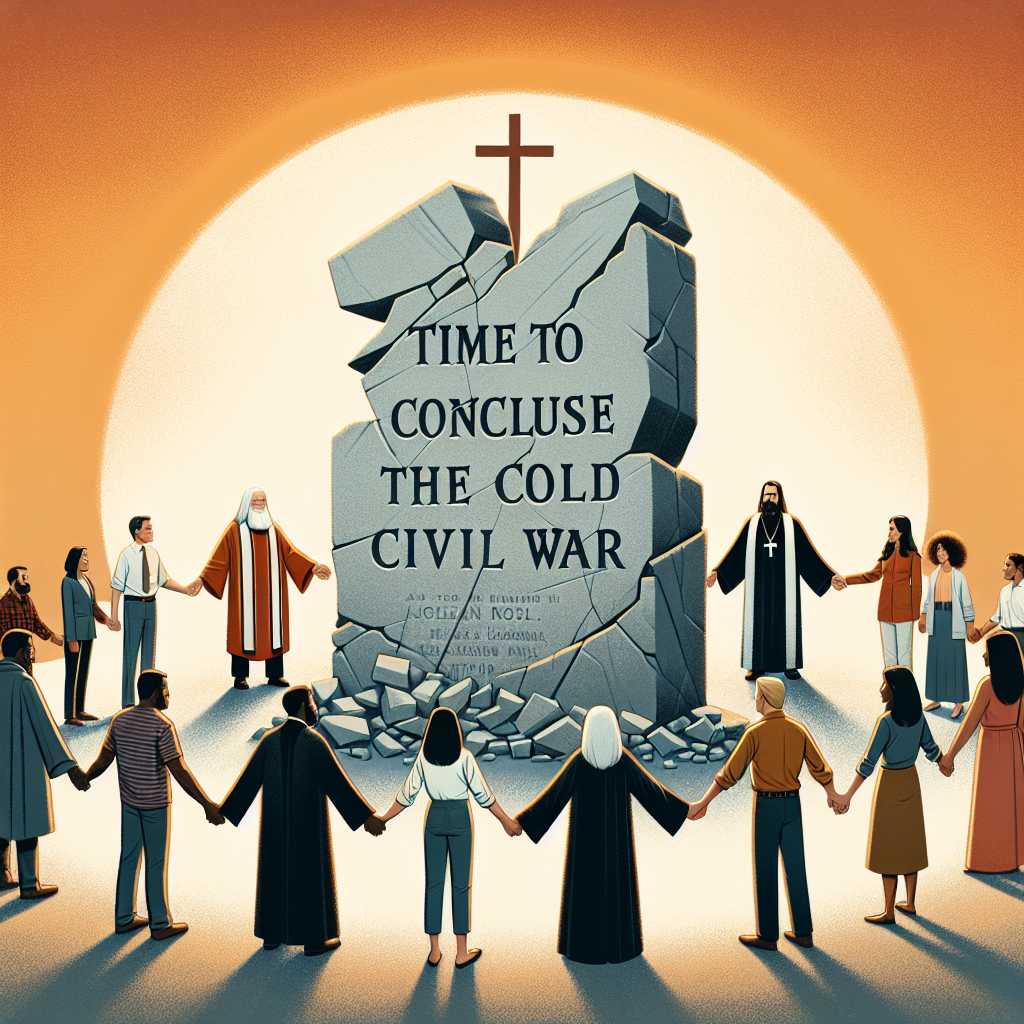The political climate in the United States has become increasingly polarized, giving rise to a “cold civil war” between Democrats and Republicans. The infiltration of Marxist ideology in the Democratic party has led to extreme positions, such as the promotion of policies that many view as detrimental to life, including abortion framed as “reproductive rights.” Conversely, the Republican party, while professing to uphold Christian values, has been influenced by Neoconservative principles that prioritize military intervention and global conflict over genuine life issues. This dichotomy has created an environment where both sides are consumed by hatred for each other, a sentiment that is further exacerbated by mutual misunderstandings and a lack of meaningful dialogue. As a result, the American populace finds itself in a situation devoid of a shared value system, setting a dangerous precedent for potential future conflict.
Both political parties have succumbed to a mindset that is entrenched in division, leading to an escalation of hostilities that echoes the ideological battles of the past. This ideological war, which has been characterized by demonization of the opposing side, allows for an atmosphere where violence seems like a possible outcome. Rather than approaching their political adversaries with compassion or understanding, both Democrats and Republicans have often resorted to attacks that reinforce entrenched beliefs instead of fostering a democratic discourse. The dangerous narrative emerging from this conflict is that hatred and animosity are seen as justifiable responses to ideological differences. The absence of empathy risks transforming political disagreements into literal warfare, undermining the principles of democracy founded on respectful debate and compromise.
The election of Donald Trump has amplified these tensions, positioning him as a symbolic figure in the battle against perceived leftist Marxism. From the moment he entered the political arena in 2015, Trump has faced unprecedented scrutiny and attacks aimed at tarnishing his image, from conspiracy theories involving foreign collusion to actual threats to his life. These adversities have effectively galvanized his supporters, creating a staunch sense of loyalty among them that is founded on a shared experience of perceived injustice. The continuous barrage of negative commentary from the left has led to a gloating attitude among Trump’s base, who view his victory as a triumph over a relentless adversary. This situation highlights the reactive nature of political allegiance, where supporters are often reinforced in their views through a lens of victimhood.
In understanding this polarized environment, it is crucial for Christians to exercise the principle of loving one’s enemies, a fundamental teaching that stands in stark contrast to the prevailing attitudes of hostility. This approach calls for a transformation in how Christians engage with others across the political spectrum, promoting a discourse marked by compassion rather than condemnation. By embracing this challenge, Christians have the potential to foster dialogue that bridges ideological divides. This mission is not merely a theological exercise but a practical one, seeking to create a societal landscape where understanding and respect prevail over enmity and resentment. This path acknowledges that the way forward involves healing and reconciliation rather than further entrenchment in ideological warfare.
As the nation grapples with the implications of deep-seated partisanship, it is essential for both sides to reevaluate their strategies and methodologies. The Republican party must introspectively address how its approach has locked it into a cycle of violence and retribution yet fails to authentically embody its Christian identity. It is necessary to recognize that using the same Marxist-inspired tactics leads only to further division and conflict instead of resolution. There is also a vital need for Democrats to reconsider their ideological rigidity in the face of profound moral issues, which can alienate potential allies who may share common values. Both parties can benefit from the clarity that comes with a commitment to genuine engagement, moving away from reactionary politics that divide and destruct.
In conclusion, the future of American democracy hinges on the ability of its citizens, especially those who identify as Christians, to rise above partisan grudges and embrace the call to love even those with whom they disagree. The deterioration of civil discourse has paved the way for a mindset that views opponents not merely as rivals but as enemies to be vanquished. In shifting this perspective toward one of empathy and understanding, Americans can begin the process of rebuilding a shared social fabric. The commitment to this transformative ethos could provide the foundation necessary to heal divisions and allow the nation to emerge from this cold civil war. Ultimately, the Christian ethos of love and reciprocity can offer a guiding framework that transcends political allegiances, fostering a path toward unity and understanding in a deeply divided nation.

